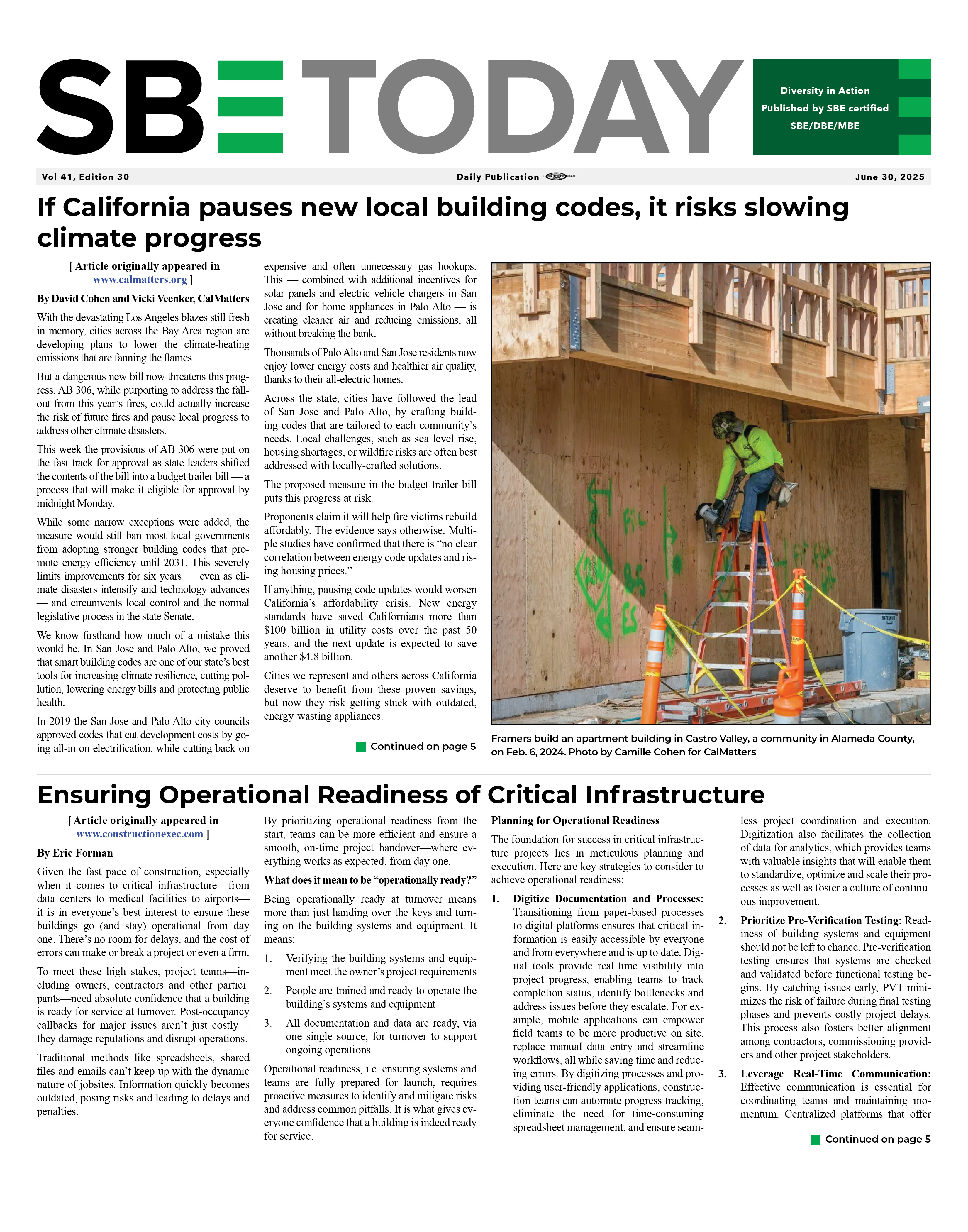The data is clear: Increasing supplier diversity will benefit all Californians. Large corporations and government agencies across the nation buy billions of dollars in goods and services, and when diverse businesses get their fair share of these contracts, it builds jobs and prosperity in communities that otherwise may be left behind. Many firms are proactively embracing supplier diversity as a means towards maximizing their impact; however, hospitals have remained notably silent, mainly because they haven’t had to share this information with the public. This raises serious questions given the rapid growth among hospitals in the state and nation over the past decade.

Autumn Burke (D-Los Angeles) is championing AB 962 to promote hospital supplier diversity.
And don’t take our word for it; take theirs: According to the American Hospital Association, hospitals in California contributed over $230 billion to the total state economy in 2016. While some hospitals have bought into the value of supplier diversity, most hospitals in the state haven’t dedicated the necessary time and attention to increasing or tracking their supplier diversity.
Therefore, as state leaders assess the merits of this bill, here are three important reasons why California needs AB 962:
1) Supplier diversity benefits ALL Californians
Diversity is NOT a zero-sum game. When the California Public Utilities Commission began tracking supplier diversity among utility companies in 1986, diverse businesses only received a paltry $2.6 million in contracts; by 2017, that amount had grown to over $10 billion – simply as a result of reporting and transparency. Moreover, after the California Department of Insurance began surveying the supplier diversity of the state’s insurance providers in 2012, investments and partnerships with diverse small businesses increased by 93 percent over a five-year reporting period, from $930 million in 2012 to $1.8 billion in 2017.
The success from these policies has been resounding: According the U.S. Census Bureau, in 2012, California boasted the largest market of diverse businesses in the nation. California should celebrate these achievements and ensure that other growing sectors – like hospitals – monitor their supplier diversity as well.
2) Diverse businesses serve California’s most vulnerable populations
Minority-owned businesses represent 42 percent of all firms in California, with women, LGBT, and disabled veteran-owned businesses comprising 32 percent, 1.7 percent, and 2 percent, respectively. These businesses are more likely to operate as small businesses and hire people from diverse backgrounds, providing people from marginalized communities with a pathway to financial security and upward mobility. These enterprises play an especially critical role in times of economic downturn and increasing income inequality.

Hospitals are a vital part of California’s success, and it’s time they start supporting diverse businesses too. AB 962 will finally allow health care, business, and government leaders to engage in an honest and transparent discussion about leveraging the rapid growth of the health sector to benefit marginalized communities across the state. Photo: Wiki Images
In struggling and underserved communities, these businesses create important jobs for individuals from marginalized backgrounds. They make the up the backbone of the state’s economy. Monitoring how hospitals engage with these enterprises makes moral and financial sense.
3) Transparency in supplier diversity builds trust and accountability
AB 962 will finally allow health care, business, and government leaders to engage in an honest and transparent discussion about leveraging the rapid growth of the health sector to benefit marginalized communities across the state. Without this information, all we can do is speculate about the health sector’s engagement with diverse businesses and the communities they serve. Making this information public is the only way to accurately evaluate the market the hospitals operate in, and it’s the best way to guarantee these discussions occur equitably.
As a result of AB 962, California can expect increased engagement and partnerships between hospitals and diverse businesses across the state, just as happened with previous supplier diversity legislation. By requiring disclosure of this vital information, California can leverage the expansion of the growing health sector to benefit small businesses and enterprises that employ people of color, women, LGBT people, and veterans.
Hospitals are a vital part of California’s success, and it’s time they start supporting diverse businesses too. If you would like to support AB 962, please send in a support letter to Anthony Galace, Director of Health Equity with The Greenlining Institute. A sample support letter with instructions can be found here.
Anthony Galace is Greenlining’s Health Equity Director. Follow him on Twitter.
SOURCE: http://greenlining.org/blog/2019/support-ab-962-the-hospital-supplier-diversity-act/





